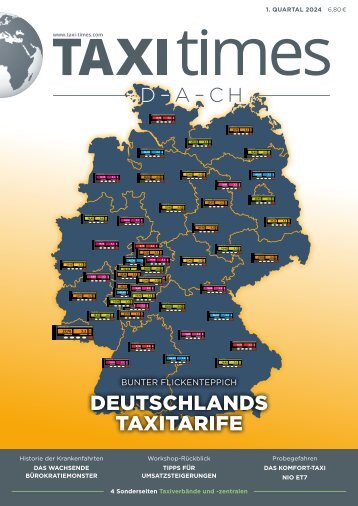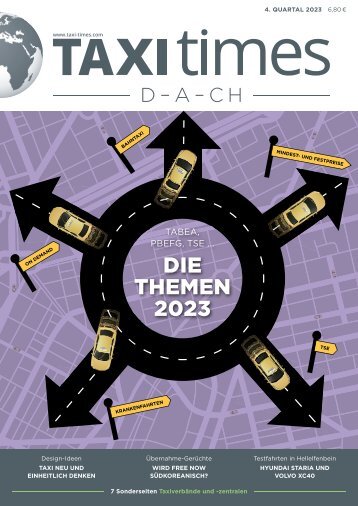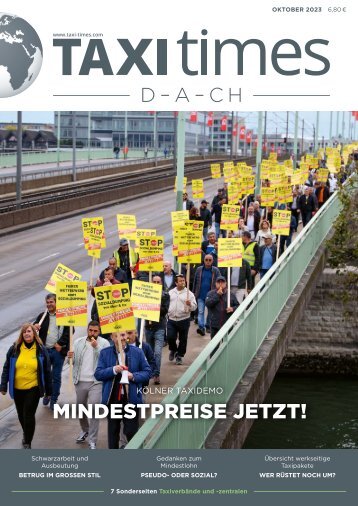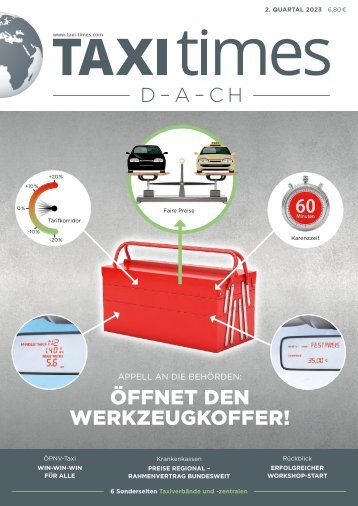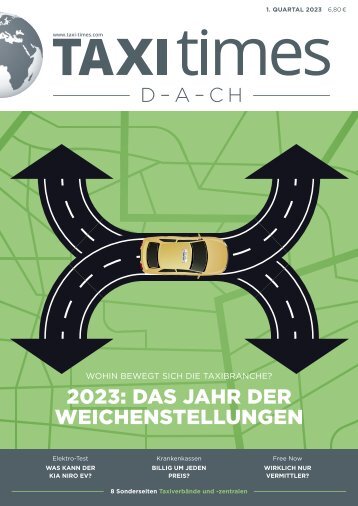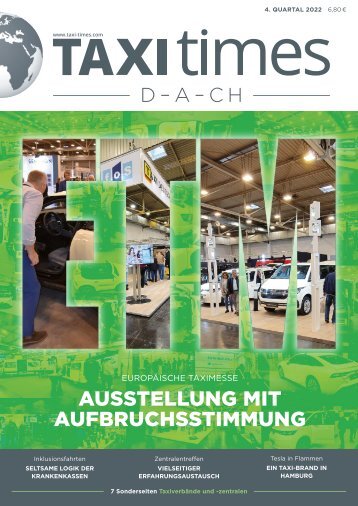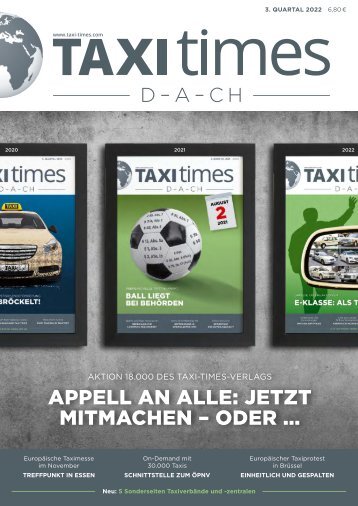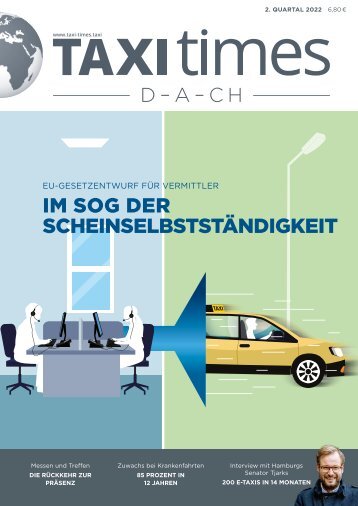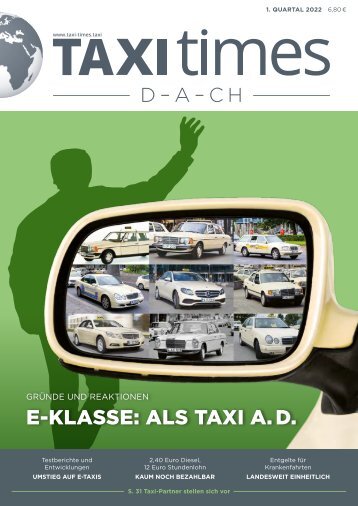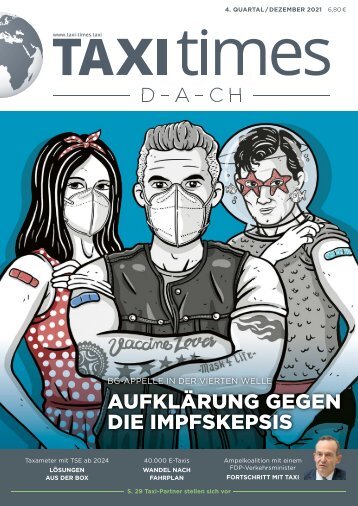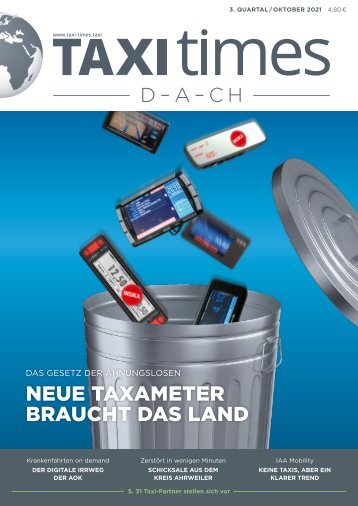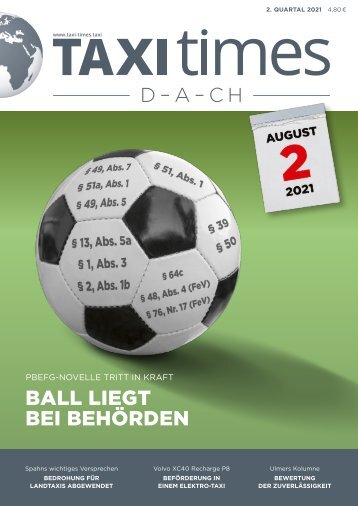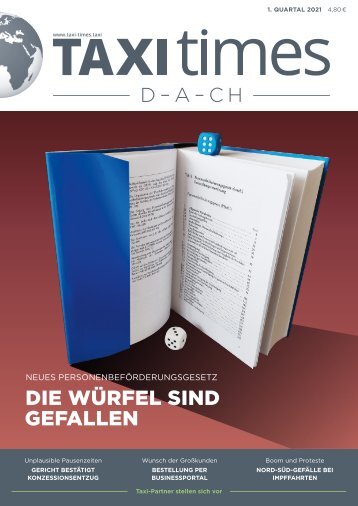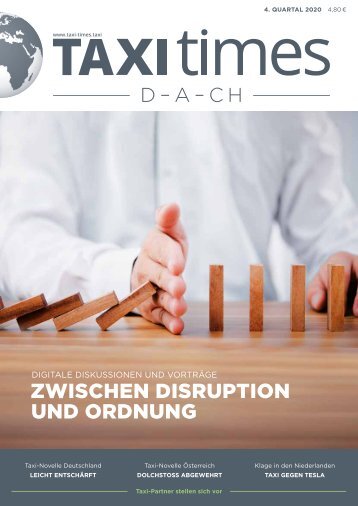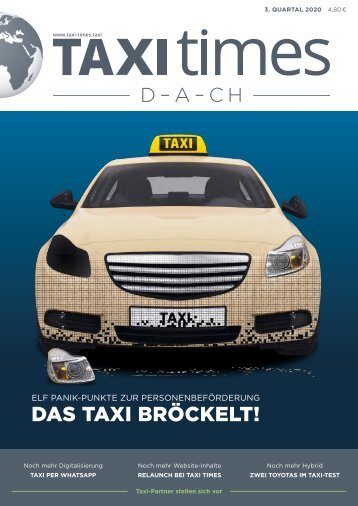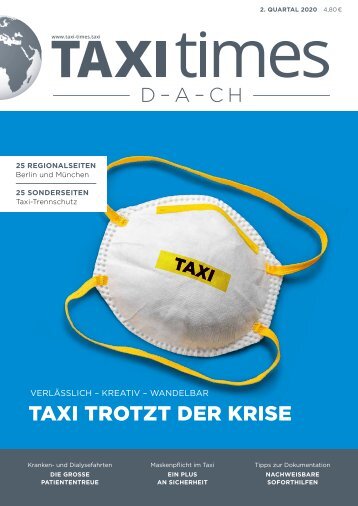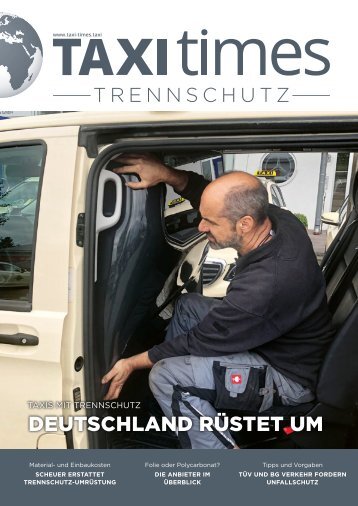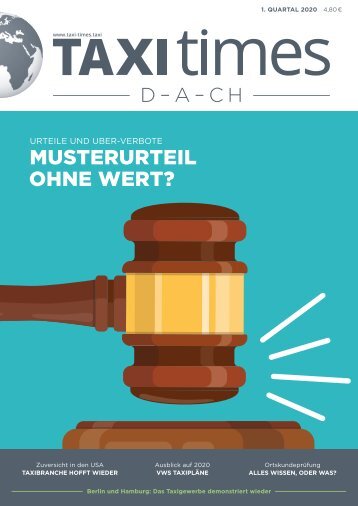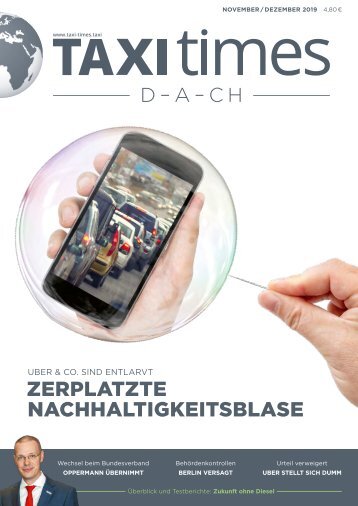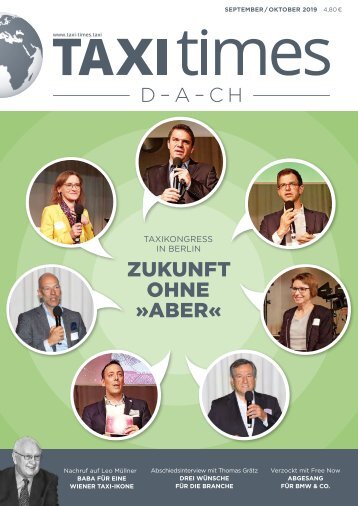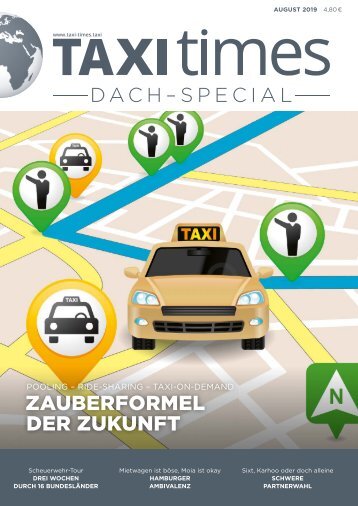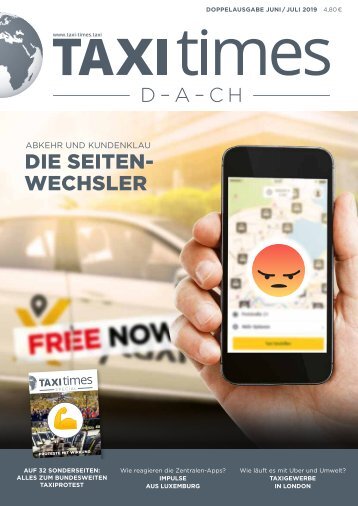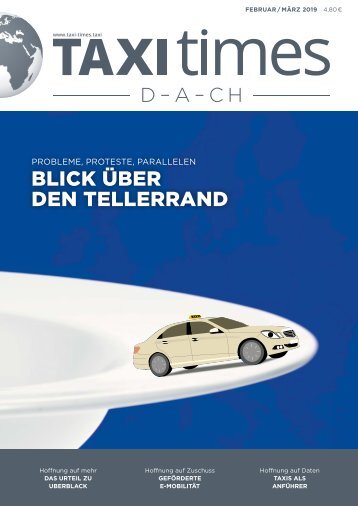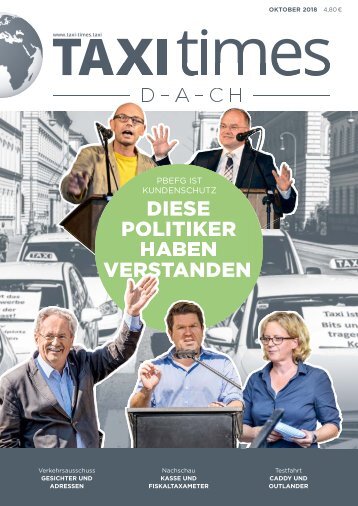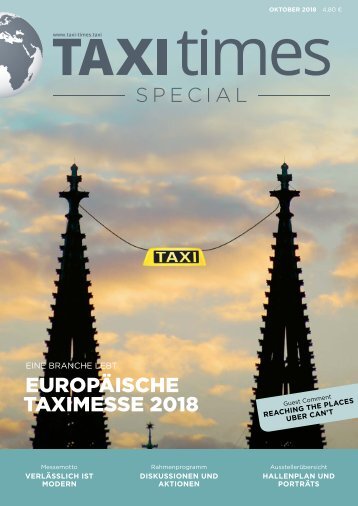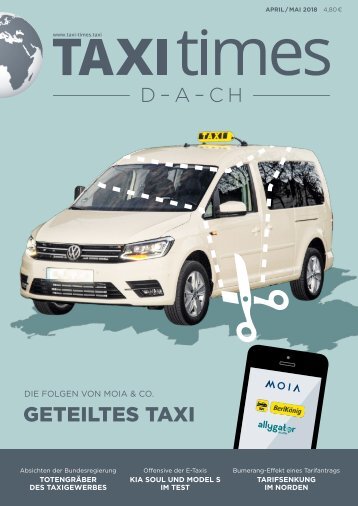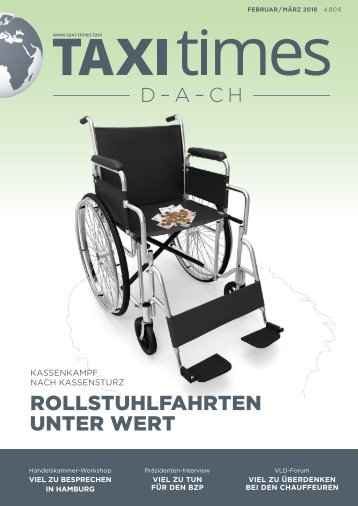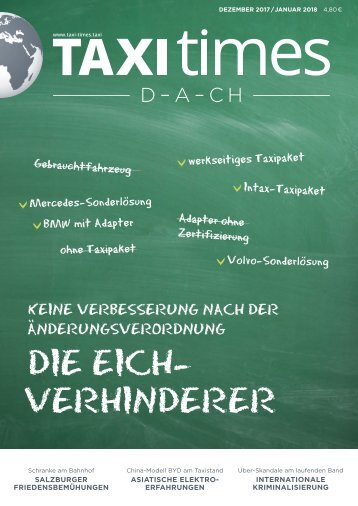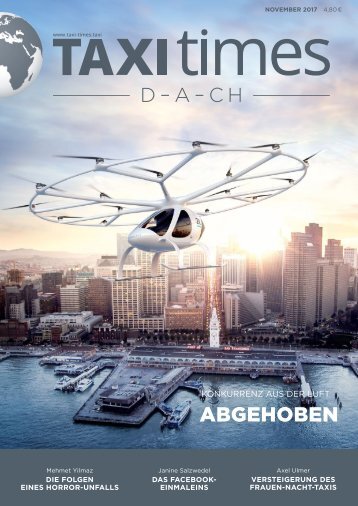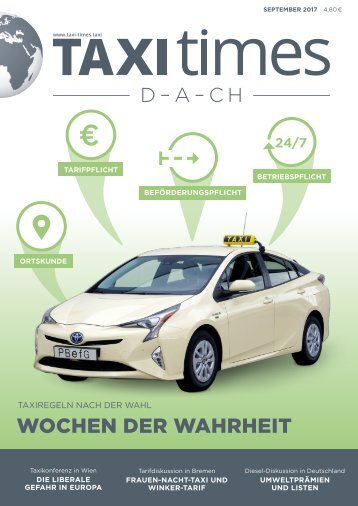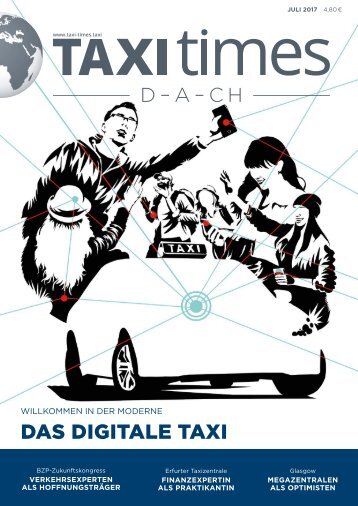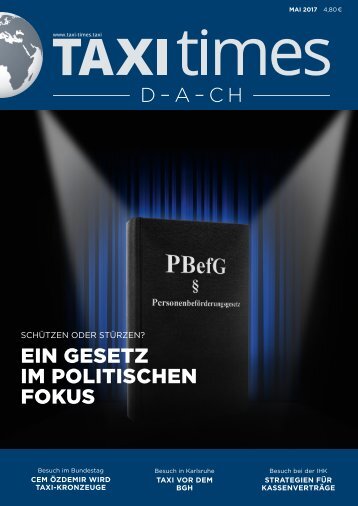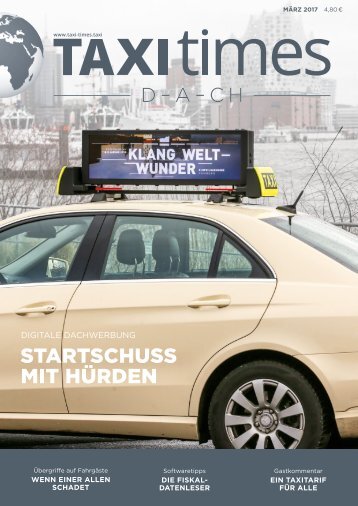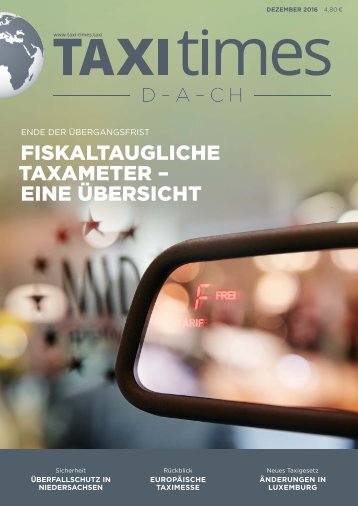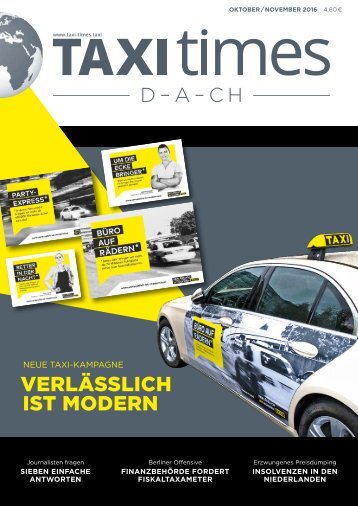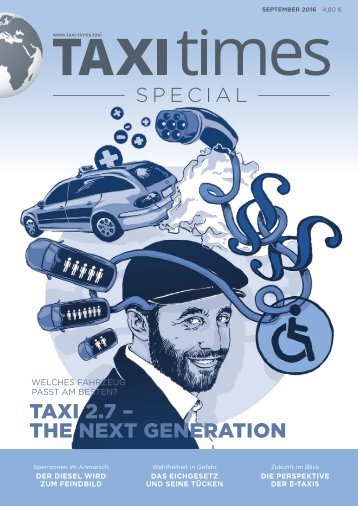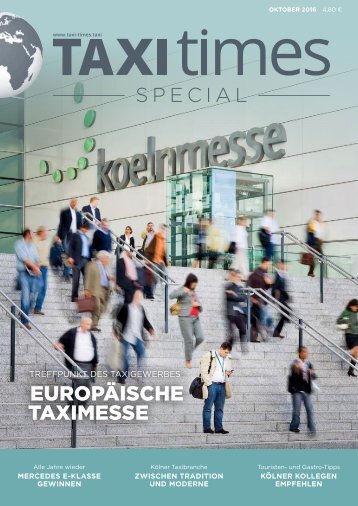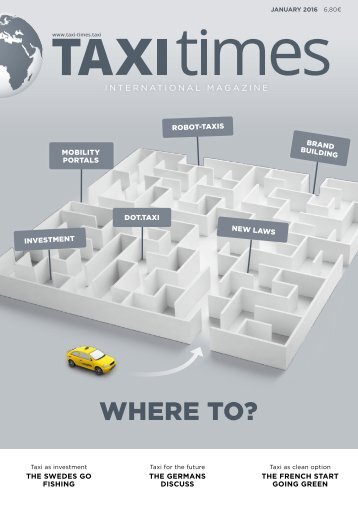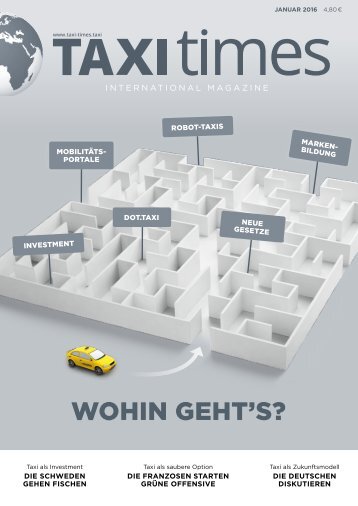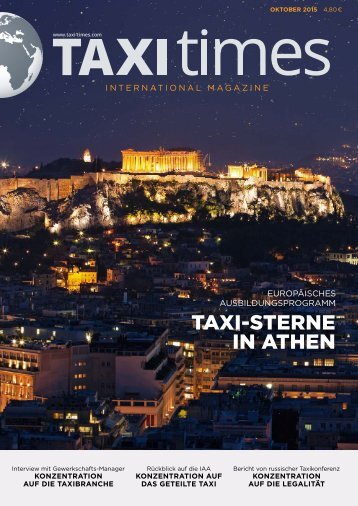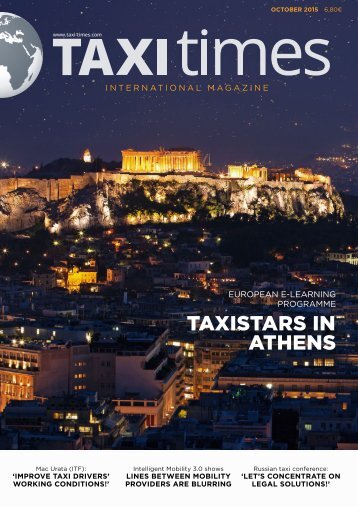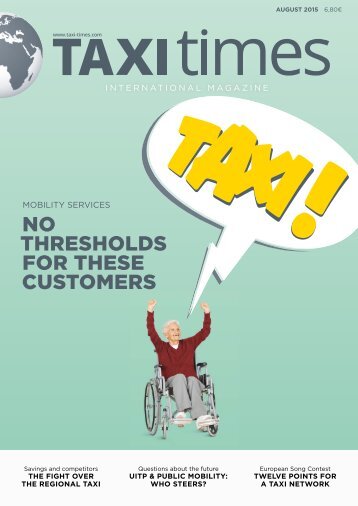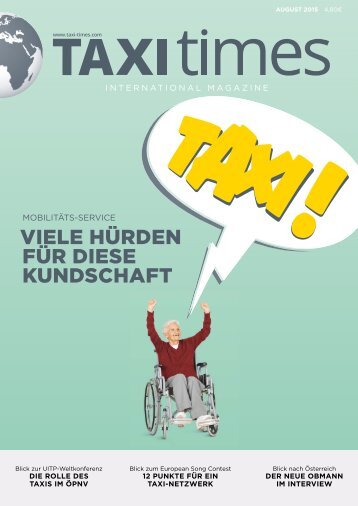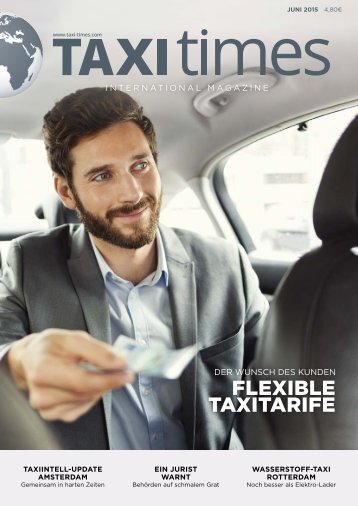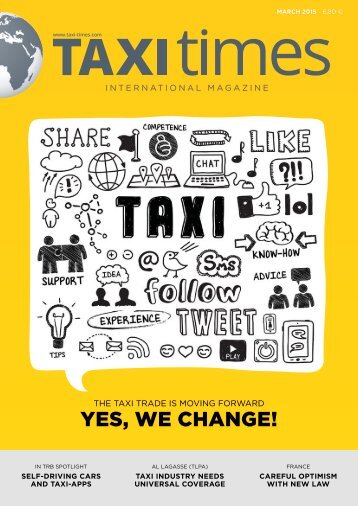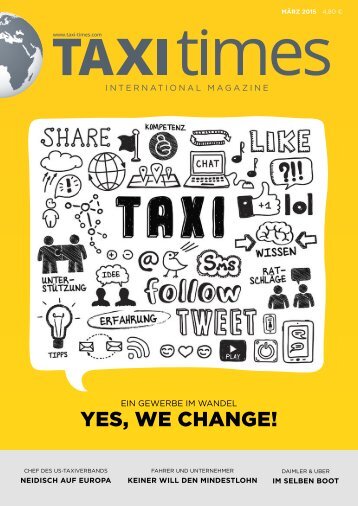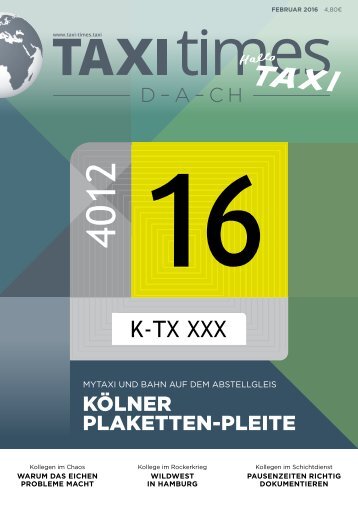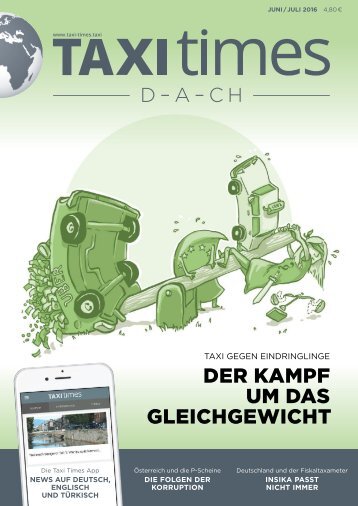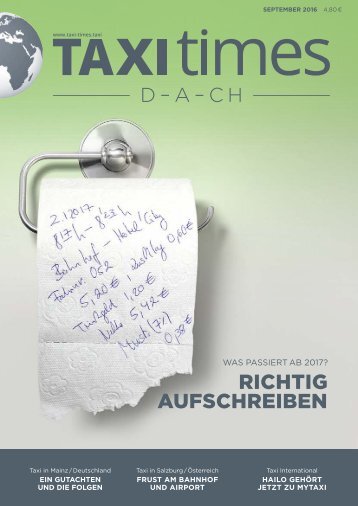Taxi Times International - January 2015 - English
- Text
- Taxis
- January
- Uber
- Drivers
- Dispatch
- Association
- Oftedal
- Vehicles
- Mobility
- Circuits
CONFERENCE CONFERENCE
CONFERENCE CONFERENCE BZP president Michael Müller (above) in discussion with representatives from the industry and organisations and with politicians at the ‘Taxi-Zukunft’ congress. Clockwise: Dirk Breuer, Michael Schreckenberg, Lars Klingbeil, Marcus Gawron, Markus Lienkamp, Michael Nielsen, Eileen Mandir, Otmar Lell, Thomas Jarzombek, Tom Kirschbaum. I s a taxi rate really too expensive just because one passenger complained about it to a politician? Will passengers in the future use only one app offered by all types of public transport? Is it still even worth considering future engine types for vehicles if cars will drive autonomously anyway? And when will that be? Exciting hypotheses were debated at the ‘Taxi-Zukunft’ (‘Taxi Future’) congress organised by the German federal taxi association BZP in Berlin. Experts gave tenminute presentations in a total of three panels before moderator and BZP president Michael Müller opened the discussion with the speakers and the approximately 80 congress visitors after each panel. „ANY MARKET WE DO NOT OCCUPY IS OCCUPIED BY OTHERS” Problems – and solutions – were discussed very openly at the congress on the future of the taxi. Surrounding all of this was the big question as to what an increasingly digitised world would bring. “Digitisation will bring changes”, said Müller in his introduction to the event, followed by a warning to the taxi trade: “Those who don’t change will have change forced upon them – and it’s usually worse than if you had participated in the change.” The audience received suggestions for change from the experts – like choosing the right engine type for the future, for example. Volkswagen is promoting emissions-free and low noise electromobility, the first phase of which has already been completed with the Passat GTE. The plug-in model runs on petrol and with a battery. However, the charge currently only covers a distance of 50 kilometres. The remaining 950 kilometres without stopping to fill up are still covered the old way. “We don’t need a vehicle with a range of 1,000 kilometres”, said one participant rightly in the ensuing panel discussion. Three hundred kilometres would be more than enough to get through one shift. THE PLUG-IN HAS NO FUTURE On the other hand, hybrid and hydrogen expert Dirk Breuer from Toyota believes that the plug-in has no future. He claims that only 80,000 plug-in vehicles have been sold in his group in three years, while hybrid cars boast a production figure of PHOTOS: Taxi TImes nearly four million. In its development of emission-free vehicles, Toyota is focusing on hydrogen. The Mirai is the world’s first series-produced hydrogen vehicle and will undergo an initial field test in Hamburg and later in Munich (also as a taxi). The Mirai’s future in Hamburg is already EVA’s reality in Singapore. EVA is the first electric vehicle designed exclusively for use as a taxi. According to one of its developers, Professor Dr Lienkamp from the Technical University Munich, it has a range of 260 kilometres per shift and 520 kilometres per day. The taxi has to be plugged in every six hours for a fast charge. The battery costs are still very high, but Professor Lienkamp predicts that their EVA will be cost-effective and ready for series production in four years. There will be nothing at that point to hold it back from immediate deployment. “Then we will only need to convert the vehicle from right-hand to left-hand drive.” Or there will be no need for a steering wheel at all, if the predictions are accurate that vehicles will drive autonomously by 2020. However, Professor Michael Schreckenberg from the University of Duisburg-Essen cautioned against equating automated driving with autonomous driving, saying that the requirements are still too complex. There will be no autonomous cars in the next 49 years”, he said, quoting a Mercedes executive. MOBILITY PORTALS ARE PART OF SALES PERFORMANCE In any case, we should not count on it; these days, digital revolutions occur with lighting speed. For an obvious example, take a look at the smartphone interface, which the user now has to swipe six or seven times before finding the app he wants to use. It will be even more so if various regional mobility providers are competing over the front app positions on the smartphone. Less will soon be more, at least that is what the two speakers of the second panel, Dr Tom Kirschbaum (ally) and Dr Eileen Mandir (moovel), have learned from their work. Both have a mobility app on the market that shows the user all available modes of transport for getting from A to B. Of course the taxi is also shown as an option in the mix of services. If an order is put together, the taxi partner is charged a hailing fee. Dr Kirschbaum called for understanding in this matter: “It is part of sales performance and it is allowed to have a price.“ If you were to advertise on a poster instead, you would have pay for that too. All the participants in the discussion were quick to agree that the taxi trade will not be able to refuse these portals. “If we don’t participate, the future will happen anyway without us. Any market we do not occupy will be occupied by others”, warned Müller. And Michael Nielsen, representative of the International Road Union IRU, who had spoken about the rapid growth of the Global Taxi Network GTN in his talk, reminded everyone that “others would be only too willing to participate.” Finally, from Nielsen’s perspective, there is no reason for the taxi trade to refuse. He explained that it is important for the sector to take an offensive approach to the challenges by combining more and more taxi radio circuits and operations into one big network. “GTN is growing so fast because the participants themselves have agreed not to charge each other any fees if one profits from another”, explained congress participant Hermann Waldner, with taxi.eu founding member of GTN. The stronger the position of the taxi industry, the easier it will be to get involved in the mobility portals and even to actively design the conditions and processes instead of ending up fatally dependent on them. “If a portal has market power in the first place, a 30% hailing fee will become the norm. We all know that from the hotel booking portals”, says participant Christian Holzhäuser from the Vienna taxi circuit 40100. His tip is to get involved but to keep it diverse so that monopolies do not have a chance to form. BETTER PERFORMANCE IS NOT WORTH IT Such monopolies inevitably lead to price increases, especially when the demand is All of the participants in the second panel agreed that the taxi sector would not be able to refuse participating in mobility apps. From left: Dr Tom Kirschbaum (ally), Dr Eileen Mandir (moovel), moderator Michael Müller (BZP) and Michael Nielsen (IRU). 12 JANUARY / 2016 TAXI TAXI JANUARY / 2016 13
- Seite 1 und 2: JANUARY 2016 6,80€ www.taxi-times
- Seite 4: PEOPLE DWIGHT KINES NEW PRESIDENT F
- Seite 8: PORTRAIT PORTRAIT OLE OFTEDAL AIMS
- Seite 14: CONFERENCE Reserve your .taxi addre
- Seite 18: CONFERENCE CONFERENCE This year’s
- Seite 22: CARS CARS On the lonely highways in
- Seite 26: NEWS ZOOTAKSI ANYONE? THE SLEEP TAX
Unangemessen
Laden...
Magazin per E-Mail verschicken
Laden...
Einbetten
Laden...
